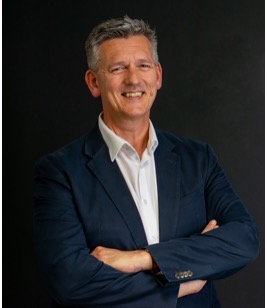 By Arjen de Bruin, Group CEO at OIM Consulting
By Arjen de Bruin, Group CEO at OIM Consulting
With Coal & Energy Transition Day taking place this month, the discussion around sustainability and coal mining ramps up, as the sector grapples with the desire and responsibility to lower its carbon footprint – but not lose its very reason for existence.
Green gung-ho
I would wager that all shareholders across every mining or manufacturing company in South Africa understand the onus on their business to ‘go green’; a broad term that essentially encompasses lowering one’s carbon footprint, seeking and utilising renewable energy sources, environmental conservation, recycling, waste reduction and more.
Yet in recent times, our initial ‘green gung-ho’ seems to have slowed down. We still want to do this, but now we’re realising that the shift to go green may not be as rapid as we initially envisioned.
Is this because we’ve stopped caring? Most certainly not – I would say that now more than ever, business leaders recognise their moral imperative to whole-heartedly embed ESG principles – in both letter and spirit – into their operations.
Rather, and after an especially turbulent few years, we’ve come to realise that going green is a marathon, not a sprint, and to become meaningfully sustainable, we need to do this…well, sustainably.
It’s a conundrum that many markets – especially those with the prefix ‘developing’ – face: how do we transition to renewable energy while not wiping out entire sectors that not only bolster our economy and contribute to our GDP but are also responsible for the employment of so many people?
While the first world talks about global renewable energy imperatives, the developing world believes that it’s unfair for them to bear the cost burden of this eagerness. “You’ve had your inexpensive fossil fuels and thrived. Now that you’ve decided to transition to pricy renewables, you want us to immediately join the party when we’re barely struggling to get by!” seems to be the sentiment.
Particularly since the Russia-Ukraine conflict, the price of numerous raw materials has increased as manufacturing supply chains suffered blow after blow. Locally, loadshedding, political turbulence and rail and port issues only compounded the cost burden, making green initiatives – while important for the future – not quite as important as keeping one’s head above water right now.
And this applies to both business and consumer. In South Africa, the majority of citizens live on the breadline, making them extremely cost-conscious. I will put my neck out and say that aside from a small percentage of wealthy citizens, most South Africans cannot afford an expensive solar set-up or going off the grid, and they’re not particularly concerned with the energy transition. They just want affordable, uninterrupted electricity.
Raked over the coals
You’ve no doubt seen the turn of this tide, even in first-world countries. Politicians are starting to backtrack on their green goals, such as former Prime Minister Rishi Sunak, who last year said that Britain will soften policies aimed at achieving net zero carbon emissions by 2050, and instead pursue a “pragmatic” approach to hitting target. And while Sunak’s shifting stance was hotly debated, more nuance to the green conversation is needed.
By way of example, Australia produces coal for Indonesia – a developing country still reliant on fossil fuels. Say Australia was to decide from that day forward, it will no longer produce coal. Not only will it lose the revenue and employment, but will it stop Indonesia from using coal? No, Indonesia will simply buy it elsewhere. And that ‘elsewhere’ will likely be further afield, meaning that Indonesia’s carbon footprint will increase and its cost burden will grow, which will have an environmental ripple effect.
So while Australia’s reduced carbon footprint might look impressive, it’s not really making things better unless the change is considered holistically and executed sustainably.
Mining the future
Change will happen more gradually than we initially anticipated, but it will happen.
Mines have already put environmental frameworks in place, and most are already using renewables to power their operations. There are sustainability programmes and initiatives to mitigate environmental impact. And mines know that they also need to equip workers for the future.
Currently, there are around 80,000 jobs linked to coal mines and 170,000 in ancillary industries. So while, in the short-term, we may not move away from coal in a hurry, this is still a huge workforce that will need to be reskilled to become proficient in renewables. Change is never easy for people, and this will take time.
As we saw with the mechanisation of mines, you can install powerful technology but if your workers are not aligned with your mission or don’t buy into the need for change, you will struggle to leverage the benefits tech affords or to truly modernise your mines.
As organisational improvement consultants with our core expertise within the mining sector, we’re saying to our clients: make sure you take your people along with you on this journey.
